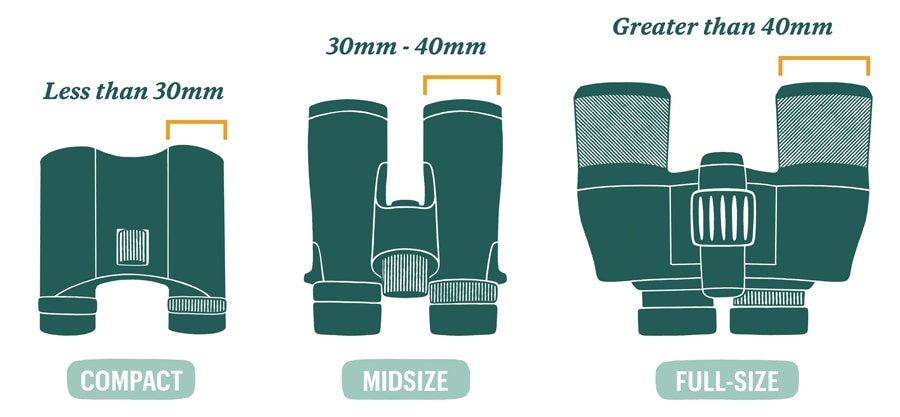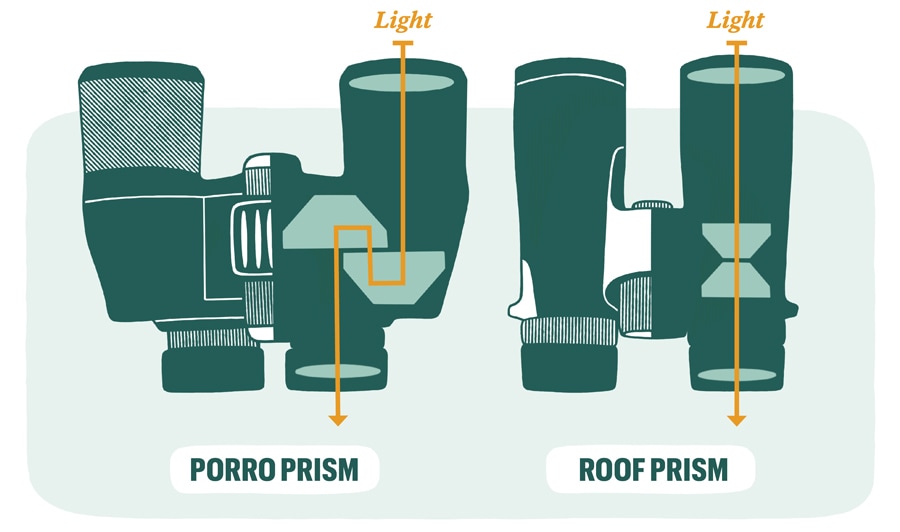The Importance of Field Glasses in Education and Scientific Study: How These Optical Instruments Add To Understanding and Expedition
The integration of binoculars into instructional setups and scientific research study is often neglected, yet their payment to improving empirical abilities is significant. These instruments bridge the space between theoretical concepts and useful application, enabling trainees and scientists alike to engage with their settings in a tangible manner. In self-controls ranging from ecological scientific research to astronomy, binoculars act as important devices that promote questions and important thinking. The wider ramifications of these optical tools on discovering results and scientific exploration warrant further evaluation, especially as we consider their possible in forming future scientific ventures.
Enhancing Observational Abilities
In academic and study settings, using binoculars substantially boosts observational skills among students and professionals alike. These optical tools promote a deeper understanding of far-off topics, making it possible for customers to observe details that would certainly otherwise remain unseen. By utilizing field glasses, learners can take a look at wild animals, huge phenomena, and geological developments, promoting a more profound connection to the subject issue.
Binoculars offer as essential devices in area research studies, encouraging pupils to involve actively with their environment. With enhanced observation, they can gather information extra properly, bring about improved logical abilities. This hands-on experience enables the development of important reasoning, as pupils have to analyze what they see and relate it to academic understanding.

Bridging Concept and Method
Observational skills developed with the use of field glasses naturally bring about an extra extensive combination of theoretical knowledge with useful application. By participating in straight observation, learners can transform abstract principles into concrete experiences. This harmony fosters a much deeper understanding of scientific principles as pupils link academic frameworks with real-world phenomena.
For instance, when examining bird biology, students can apply their knowledge of bird composition and actions with the lens of binoculars, observing qualities such as plumage variant, feeding practices, and migratory patterns. This straight interaction not just enhances academic ideas yet likewise grows important thinking and analytical skills.
Moreover, using field glasses urges learners to create hypotheses based on their observations, thereby improving their scientific questions abilities. They can actively examine these hypotheses in the field, causing a much more experiential learning setting that promotes curiosity and exploration.
Fundamentally, binoculars function as an important device in connecting the gap in between classroom knowing and fieldwork - Binoculars. They encourage trainees to become active participants in their education and learning, motivating a holistic approach to recognizing the natural world and its intricacies. Therefore, the assimilation of concept and practice is crucial for promoting educated and involved students
Applications in Environmental Scientific Research
Making use of field glasses in ecological scientific research boosts the ability to observe and examine environments with better accuracy. These optical tools are important for carrying out area research studies, allowing researchers to keep an eye on wild animals populaces, assess plant health and wellness, and evaluate environment problems without disrupting the natural atmosphere. Field glasses promote the recognition of types at different ranges, enabling scientists to gather critical data on biodiversity and behavior.
In environmental study, binoculars are crucial devices for ornithologists examining bird habits and movement patterns. They allow researchers to tape monitorings over long periods, contributing to valuable longitudinal research studies - Binoculars. Additionally, binoculars play an important role in environment assessments, as they enable the in-depth monitoring of plant neighborhoods and their communications within environments
Environmental educators additionally benefit from binoculars, as these instruments enhance experiential discovering opportunities. Trainees can involve straight with their surroundings, promoting a much deeper recognition for ecological systems. By incorporating field glasses into curricula, instructors can motivate the following generation of ecological scientists.
Role in Astronomy Education And Learning
The usage of field glasses in astronomy education gives an available gateway for pupils and fanatics to explore celestial sensations (Binoculars). Unlike big telescopes, binoculars are mobile, user-friendly, and fairly low-cost, making them an ideal initial tool for observing the night skies. Pupils can easily involve with the universes, fostering a hands-on discovering experience that boosts their understanding of astronomical ideas
Binoculars allow users to observe a range of celestial items, consisting of the Moon, worlds, important site and star collections. This availability motivates expedition and observation, essential parts of scientific query. Trainees can develop vital abilities such as data collection, observation techniques, and also fundamental astrometry. Significantly, binoculars act as a bridge to a lot more complex expensive tools, giving fundamental experiences that can stimulate deeper passion in the field.
In educational setups, directed binocular sessions can promote team partnership and discussion, boosting the learning experience. The common experience of observing celestial objects can cultivate a sense of community among learners. In general, binoculars play a crucial duty in demystifying astronomy, making it friendly and engaging for individuals at all degrees of education.

Inspiring Curiosity and Inquiry
Binoculars not just promote the monitoring of celestial sensations but additionally spark a feeling of interest and questions amongst pupils. By providing a closer consider distant items, field glasses motivate learners to ask questions and check out the atmosphere around them. This device Go Here changes passive learning right into an active, interesting experience, cultivating a deeper understanding of scientific principles.
When trainees make use of binoculars to observe wild animals, landscapes, or expensive things, they create empirical skills that are critical for scientific questions. The act of concentrating on specific information motivates them to develop hypotheses, conduct examinations, and reason based upon their monitorings. This process not only enhances their critical assuming capabilities yet additionally nurtures a long-lasting passion for exploration.
Furthermore, field glasses can bridge the void in between theoretical knowledge and real-world application. Ultimately, the usage of binoculars in educational settings serves as a driver for inquisitiveness, encouraging pupils to seek understanding with excitement and cultivating a sense of wonder concerning the globe around them.
Verdict
In summary, field glasses function as vital tools in education and learning and scientific research, considerably boosting observational skills imp source while bridging the void between academic knowledge and practical application. Their diverse applications in areas such as ecological science and astronomy underscore their value in fostering interest and questions among trainees. By facilitating thorough evaluations of distant topics, binoculars not only influence the following generation of scientists however additionally grow an extensive gratitude for exploration and the scientific technique.